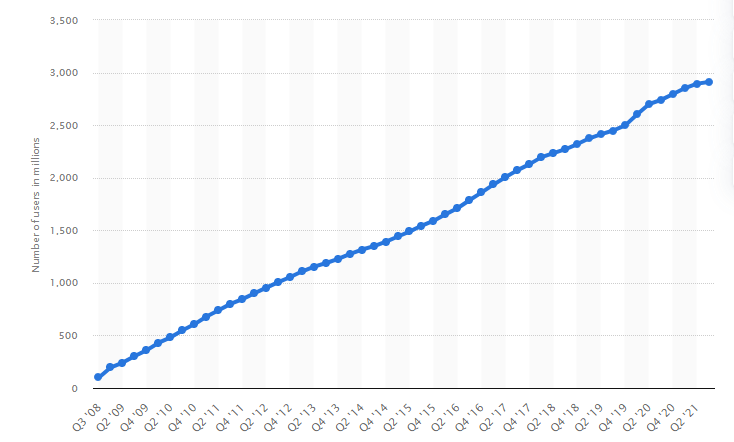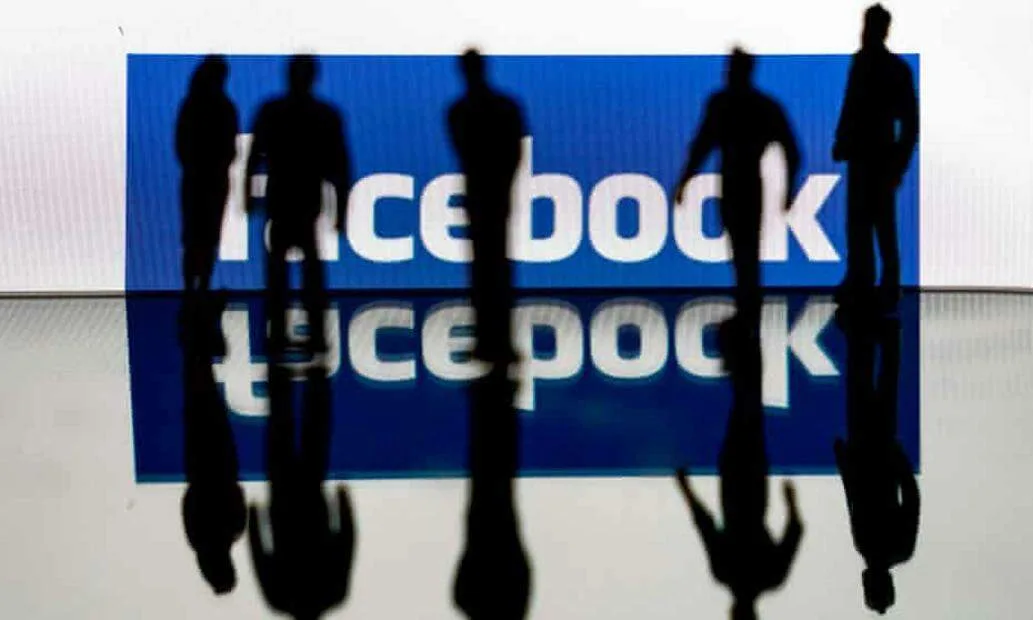While Facebook says it’s getting better at identifying fake accounts, it is still an ongoing problem. Many reports have indicated up to 50% of all Facebook accounts are fake yet the social media platform don’t seem to think this is a problem. Instead the accounts become a protected species
Most of us know that there are fake Facebook accounts and profiles. However according to the actions of Facebook, or lack of them the problem is much bigger than we can imagine.
It’s is well known that fraudsters use fake Facebook accounts to connect with users and their friends in order to obtain personal information for the purpose of identity theft. Fake account holders also contact anyone who has accepted their friend request to try and extort money.
Foreign governments are also known to use false profiles to share false information about American politics. There are also many reports of someone creating fake or anonymous accounts to spy on your ex.
As the House Energy and Commerce Committee examines how Facebook and other platforms are meeting the challenge of deleting false information, the company released statistics of fake profiles and false information.
In a report, Facebook VP of Integrity Guy Rosen said the company blocked 1.3 billion fake accounts between October and December 2020. Rosen further states that the platform detects and blocks millions of fake accounts every day, most of them now. created.
In the report, the company considers the numbers positive, as they would be the result of more effective measures against the creation of fake profiles. That is, in the case, there is a smaller number of fake accounts being created because the social network security system prevents its development.
In the first quarter of 2021, the number of fake Facebook profiles decreased by 23% compared to the same period last year. The numbers were published in the Community Standards report released by the social network on Wednesday (19).
Despite this, Facebook still says that there are a very large number of fake profiles on its network. It is estimated that around 5% of all active accounts come from ghost users. This represents something in the range of 142 million accounts when considered the total profiles on the platform.
Facebook explained that it can now use artificial intelligence to find fake accounts. Previously, this process was mostly done through complaints from other users, which are verified by company employees. The “robots” were able to analyse photos and published texts, but they were not sufficient to determine the veracity of a page.
Currently, the platform’s artificial intelligence can analyse an account in a holistic manner, combining all aspects to find signs that it is a fake. The same goes for pages that post hate speech.
The Silicon Valley company defines fake accounts as profiles that are designed to break its rules, for example, by spammers or scammers who impersonate other people, or that are misclassified, such as someone setting up a Facebook profile instead of a Facebook page for a company.
However, the number of Facebook accounts that fit these descriptions is less clear. Although the company releases its false account estimates, its numbers fluctuate and are confusing. Even Facebook admits that its understanding of the numbers is thin.
The company emphasized that most of the fake accounts it addresses were removed within minutes of creation, and therefore those accounts are not included in the metrics it reports, such as monthly active users.
Monthly active Facebook users worldwide as of 2nd quarter 2021

How Many Users Does Facebook Have?
With around 2.89 billion monthly active users in the second quarter of 2021, Facebook is the world’s largest social network. In the third quarter of 2012, the number of active Facebook users exceeded one billion, making it the first social network to do so. Active users are those who logged into Facebook in the last 30 days.
During the first quarter of 2021, the company said 3.51 billion people were using at least one of the company’s core products (Facebook, WhatsApp, Instagram or Messenger) every month.
Facebook estimates that 5 percent of its monthly active users are made up, though some have suggested that number could actually be as high as 50%
Facebook said the number of accounts it took action on had increased due to “automated attacks by bad actors trying to create large volumes of accounts at the same time. The larger quantities of fake accounts are driven by spammers who are constantly trying to evade Facebooks systems.
What should you do to protect yourself from being connected to fake accounts?
It’s pretty simple: don’t accept or approved friend requests from someone you don’t know in real life. If you receive a request from someone you know but also know that you are already logged into Facebook, it is likely that they have stolen that person’s profile picture and created a fake account using their name and his information.
Report those accounts to Facebook and in addition to clearing the request, block the fake account from following you.
Of course, it is easy to find places online and with apps where you can get a “burner phone number” or “burner email address.” Tech Business News managed to set up a fake account under an assumed name using a Google phone number in a matter of minutes.
Facebook says it now has over 35,000 people worldwide fighting fake accounts and false information being posted to the platform. It also says it’s doing better — and maybe it is — but we have to take their word for it.
Violation of Facebook Terms
Facebook’s terms state that each person can only have one account, specifically that “Facebook is a community where people use their authentic identities. Maintaining more than one personal account is against Facebook community standards.
As soon as you create a fake profile containing the details of someone else, you are entering information that is not your real identity. This fake information does not contain your real employment, relationship, or other statuses and as soon as you type in this “fraudulent” information, you have officially violated Facebook’s terms.
There are some very real legal realities of making a fake Facebook profile so you should think twice about making one.
Misrepresentation
Violating the Facebook community standards and terms is really the least of the issues you can face. The heavy-hitters come when you begin breaking the law criminally and/or civically.
As soon as you upload photos of a “fake” individual or an identity that does not belong to you, you have committed one or more crimes.
If the photo is someone you found through a google images search or taken from someone else’s profile, you have just:
- Misrepresented your identity
- Possibly committed identity theft
- Stolen intellectual property
- Copyright Infringement
Think Twice Before Making a Fake Profile
These issues mentioned are just the tip of the iceberg when it comes to the legal ramifications of creating a fake Facebook profile. You’d better create a profile that represents you instead of pretending to be someone else.
How to identify a fake Facebook account
There are different ways to identify a fake account on Facebook. Based on facts, these are the most common traits that make a Facebook account to be suspicious.
- No profile picture
Be careful when a user sends you a Facebook friend request and their profile does not contain photos, especially if the profile picture is empty.
- No photo album
If you want to know a fake Facebook account, check every user that sends you a friend request and find out if there is a photo album in their profile or not.
- Scanty information
One of the common characteristics of fake Facebook accounts is scarcity. Fake Facebook accounts have no organised or consistent information such as owner personal information, no history of personal records. Anything you can find on such an account can just be a very attractive profile picture of a man or woman.
- Profile is new
Most new Facebook accounts are not real except the users are very young. Before you can accept any friend requests, check if the account is new or not. To find out, check the number of friends on the profile.
- Inconsistent images
You can identify a fake Facebook account by the kind of images you find on such an account. t is possible the user is using Google or stock image websites to source for images.
- Low engagement rate
Another easy way to identify a fake Facebook account is to evaluate the user’s activity rate and what kind of response or feedback does it receive?
- Strange profile name
You can also identify a fake Facebook account through the profile name. The combination of some usernames can be so terrible that it serves as a warning sign. There is a difference between a username and a profile name.
- Behaviors
There is a way to track the friend you just met on Facebook. It depends on the probationary period you set for studying your new friends. Over a period of time, observe how the person interacts with your messages and images.
- Mutual friends
You can also determine a fake Facebook account by identifying a user’s friends. If someone sends you a friend request, check if you have mutual friends before you accept the request.
The Bot Problem
Facebook said it blocked 4.5 billion accounts in the first nine months of 2020 and captured more than 99 percent of those accounts before users could report them. That’s nearly 60 percent of the world’s population.
The vast majority of these accounts were so-called bots, or automated accounts that are often created en masse by software. Bots have been used for years to artificially amplify certain messages or topics so that they are seen by more people.
In recent years, Facebook, Twitter and other tech companies have gotten much better at catching bots. They use software that identifies and blocks them, often during the registration process, looking for digital evidence that suggests the accounts are automated.
As Facebook has captured more bad bots, it has also reported increasingly colossal statistics on how many fake accounts it eliminates. Those numbers have led the company to a lot of positive headlines, but “they’re not actually used very internally,” said Alex Stamos, Facebook’s former head of information security, who left the company in 2018.
Handmade Fakes
Social media companies have a much harder time with fake accounts created manually – that is, by someone sitting in front of a computer or typing on a phone.
Such fakes don’t carry the same tell-tale digital markings of a bot. Instead, the company’s software has to look for other clues, such as an account sending the same message to multiple strangers. But this approach is imperfect and works better on certain types of fakes.
This partly explains why Josh Hall, the Pennsylvania delivery driver, has repeatedly managed to impersonate former President Trump’s relatives on Twitter and attract tens of thousands of followers before the company knew it.
Manual forgeries can be more pernicious than bots because they seem more believable. Political agents use these forgeries to spread disinformation and conspiracy theories, while crooks use them to defraud people. Criminals have posed as celebrities, soldiers and even Mark Zuckerberg on social media to trick people into handing over money.
Facebook also still struggles with accounts that present themselves as those of public figures, but periodic reviews suggest the company has improved to remove them. Instagram, which Facebook owns, hasn’t made as much progress.
How We Can Combat Fake Facebook Accounts
One way to fight the fakes is to ask for more documentation to create an account. Companies have started asking for a phone number often, but they don’t want to make it difficult for people to join their websites.
Their businesses are predicated on adding more users so they can sell more ads to show them. Plus, Twitter in particular prizes its users’ anonymity; the company said it enables dissidents to speak out against authoritarian governments.
Therefore, to reduce the number of questionable accounts that must be analysed, companies rely on users to flag them. The strategy is much more efficient and cost-effective for companies. It also means that as a fake account gains more attention, it is more likely to be flagged for further analysis.
Facebook Real-Name Policy Controversy
The Facebook real name policy controversy is controversy over Facebook’s real name system, which requires a person to use their legal name when registering an account and setting up their user profile.
The controversy stems from claims by some users that they are penalised by Facebook for using their real names and suffered negative consequences as a result. For example, Facebook’s naming policies prohibit names that Facebook judges to contain too many words, too many capitals, or first names consisting of initials. Facebook’s monitoring software detects and suspends these accounts.
These policies prevent some users from having a Facebook account and profile with their real name. As part of their complaint, those who can’t use their real names point out that millions of Facebook accounts use fake but plausible-sounding names and even fake and obviously implausible names, because Facebook’s software doesn’t recognize them.
Facebook has maintained the real name system policy for user profiles. According to Facebook, the real name policy comes from location “that way, you always know who you’re connecting with and this helps keep our community safe.”
Users In Need of Protecting Their Identity
Secular, atheistic, agnostic, humanistic, or users who comment on or blog expressing critical views of a particular religion, sect, or religion in general, as well as religious opposing views critical of atheism or agnosticism, may feel they have a legitimate need to use an alias.
On December 15, 2015, Facebook announced in a press release that it would compromise its real name policy following protests by groups such as the gay / lesbian community and victims of violence.
Fake Facebook Accounts Duping Consumers And Brands
While much of the recent headlines about deceptive social media accounts have centred around fake news in the age of Covid-19 and political meddling, fake Facebook accounts have also impacted the world of consumers.
The New York Times published an article showing how “bots” are used to drive traffic and promote news on a variety of social networks, including Facebook. Brands partnering with influencers who use fraudulent practices like bots can not only waste time and money, but they can also put consumer trust at risk.
Facebook has a trustworthiness scale as one of thousands of factors the platform will use to determine the credibility of a person or account. The reputation score works on a scale of zero to one and is designed to combat false news and misinformation on the platform. However, not much more publicly is known about the valuation method at this time.
Fake Facebook Accounts Affect Influencer Marketing
As Facebook and other social networks seek to reduce fake accounts on their platforms, brands engaged in influencer marketing must also remain vigilant.
Not only do fake Facebook accounts, followers, views and likes have the potential to negatively affect a brand’s reputation, these artificial measures can lead to lower engagement rates, as well as loss of engagement. valuable information on the performance of a campaign.
For brands looking to partner with influencers on marketing campaigns, understanding the signs of fraudulent activity can be helpful.
While there are ongoing efforts to detect fake accounts and followers through software solutions, working with a reputable influencer marketing agency with strong influencer relationships and a track record in delivering campaign results is another way to avoid scammers and fraud.
Fake Facebook Profiles Are A Universal Problem
Like Facebook, other popular social platforms including Instagram, Twitter, and YouTube have dealt with fake accounts and dishonest social media activity.
While hard numbers are not available on fake Instagram accounts, the search interest for the term “buy Instagram followers” exceeds the inquiries for all other networks according to Google Trends.
Manipulated view numbers from musicians, authors and other YouTubers are bought on YouTube to promote their work or to make their videos appear more popular.
Recognising that the problem is universal, platforms, brands, agencies, influencers and the users themselves are increasingly susceptible to counterfeits. Even with the problem under some control, fake accounts could be the bane of our social media existence.
Fake Social Media Pages Are On The Rise
The popularity of fake social media accounts is on the rise, with imposter accounts popping up for celebrities, influencers, brands, and even friends. Some may have seen these imposter accounts arrive through direct messages or through social media feeds.
The objective? To access your personal information such as credit card numbers, name, phone number and other details that they can use to steal your money.
These accounts often offer discounts and gifts, apparently coming directly from brands, but both the accounts and the offers are fake. Scam accounts often take pictures of the page they are spoofing, create a similar name, and reach the followers of the actual page.
In 2020, the Internet Crime Complaint Centre recorded over 28,000 complaints related to spoofing with losses totalling approximately $216 million
while social media platforms are beginning to crack down on fake profiles yet the fakes pop up seemingly all the time hence why it’s important to vet it.
Both Facebook and Instagram recommend reporting any fake profiles through the app or filling out one of their designated forms.
On Facebook, you can report a fake account by:
- Going to its page and clicking the button with three dots at the bottom of the cover photo
- If you’re reporting a fake account for a person, click “Find Support or Report Profile.” For a fake company page, click “Find Support or Report Page.”
- Then follow the on-screen instructions to file a report.
- You also file a report directly at Facebook.com or through Facebook Messenger by scrolling down and tapping, “Something’s Wrong.”
Meanwhile, Instagram encourages the person who is impersonated to be another person, or his representative, such as a parent, to report the account.
You fill out one form if you have an account and another if you don’t. You must provide all of the information requested, including a photo of your government issued ID. According to the company, all messages are anonymous.
Fake Facebook Accounts Will Remain An On Ongoing Problem In 2023 and Beyond
Tech Business News contacted Facebook and reported 8 fake accounts over several months through it’s reporting tools. Evidence was supplied supporting the accounts were fraudulent including profile images that belonged to other people, used without consent, inconsistent images, fake names and made up home locations.
Facebook refused to suspend the accounts and allowed them to continue operating. All of the fake accounts were identified as being from the same groups and were individuals based in India and Pakistan.
One such profile included a young girl and her cat who apparently lived in Melbourne, Australia. Tech Business News spoke directly to this fake account holder who made full admissions the account was fake, the name was fake, the profile images were fake and were being used without consent.
We reported the profile and supplied the evidence gathered to Facebooks reporting systems. Once more the review department refused to suspend the account and responded they did not believe any of this posed a threat to anyone.
Demonstrated in the messenger chat box logs reported to the company was also a statement from the fraudulent account holder that said, “I have more fake accounts list” and “Actually whole group has fake ids”



Demonstrated above the fraudulent account operator also admits to accessing the social media platform from many other fake accounts while using different internet IP addresses.
Facebooks response was contradictive of the community standards and a failure to protect the intellectual property and identity of the unsuspecting young woman misrepresented in the images.
Tech Business News attempted to reach out to the company asking why they felt an individual from India operating out of a Facebook group well known for conducting common digital marking scams with an assumed name and stolen identity of a young unsuspecting woman does not pose a threat to anyone.
Facebook declined to comment.
2023 – Latest Update
In a concerning revelation, Tech Business News has uncovered a surge of fraudulent activity involving over 50 fake Facebook profiles in the last six months via its chief editors personal Facebook account.
Deep insight and analysis found 100% of these accounts were operated by Indian and Pakistani Nationals in the digital marketing space.
These deceitful accounts have run the gamut from individuals masquerading as digital marketing and search engine optimisation professionals to aggressive promotional spammers inundating users via Facebook Messenger.
The proliferation of these sham accounts has raised significant questions about the social media giant’s ability to effectively combat the rising tide of online impersonation and spamming.
While Tech Business News brought these accounts to Facebook’s attention, each reported instance was met with a disconcerting response.
Facebook’s statement that “we don’t believe this account poses a threat to the community” has left many experts and users bewildered about the company’s ability to distinguish genuine accounts from malicious ones.
The rise of fake profiles is a grave concern as it not only erodes the credibility of online interactions but also poses potential risks to user privacy and security.
Impersonators can exploit unsuspecting individuals for personal information, monetary gains, or even engage in cyberattacks under the façade of legitimacy.
As the incidents of fake profiles and online scams continue to mount, the question of accountability within the realm of social media is now more relevant than ever.
In a recent incident that highlights the ongoing challenges faced by social media platforms in protecting genuine users, Tech Business News (TBN) underscores Facebook’s failure to appropriately address instances of online fraud.
TBN’s Chief Editor fell victim to this unfortunate reality when, after responding in an irate manner to a scam attempt, Facebook imposed a 7-day ban on him.
Remarkably, the platform penalised the attempted victim instead of taking action against the scammer involved. In this instance the scam was also highlighted in the Facebook message. The social media platform turned a blind eye to the scam attempt.
This incident serves as a classic example of how Facebook’s measures can inadvertently punish authentic users while letting malicious actors escape consequences.
Instead of addressing the root cause and suspending the individual engaged in fraudulent activities, Facebook’s response adds to the perception that the platform is not adequately safeguarding its user base and allowing scammers to flourish in the name of user retention.
Such instances of misguided moderation raise concerns about the consistency and fairness of Facebook’s content oversight mechanisms.
In light of these events, the TBN’s Editor emphasises the importance of users becoming active participants in their own online security.
It is no longer viable to solely rely on social media platforms to promptly address each instance of fraudulent behavior. Users are urged to equip themselves with knowledge about prevalent online scams, recognise the signs of suspicious activity, and implement robust privacy settings to fortify their defenses.
As Facebook’s approach raises questions about the platform’s commitment to user protection, the Editor suggests that the power to safeguard online interactions has shifted to the users themselves.
By becoming educated about potential threats and adopting preventive measures, individuals can collectively contribute to creating a more secure digital environment.
As it turns out, the fake Facebook profile reporting page information in 2023 has come to be nothing but a boat anchor and pointless information.
After TBN’s editor reported over 30 profile’s using fake alias’s, names and images operated by people in India and Pakistan the social media giant refused to take action on any of them and simply allowed the digital marketing scams to prevail on the platform.
While the social media giant professes its commitment to user protection and safety, cases like these underscore the need for more discerning and effective algorithms to distinguish between legitimate user reactions and those responding to fraudulent behavior.







